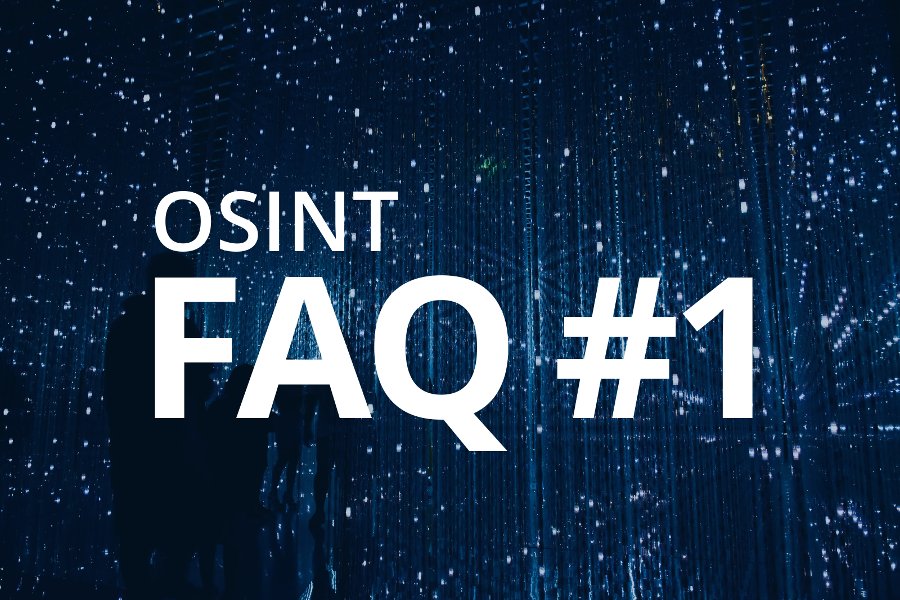
OSINT FAQ #1: What Kind of Information Are We Able to Locate?
When clients reach out to us about our OSINT | Open Source Intelligence Investigation Services, one of the first questions asked is:
“What kind of information are you able to locate?”
It’s a great question — and one we hear often.
Because there’s a common misconception that online investigators have special access to private or hidden databases, we believe it’s important to clarify what can actually be searched, what can legally be found, and what factors influence those results.
This article walks you through the fundamentals — what we can search through, what we may be able to locate, and what affects those outcomes.
Table of Contents
- A Clear Distinction – Understanding what we can search through vs. what we may locate.
- Publicly Available Categories – Common areas we search and examples of what may be found.
- What We Can’t Access – Legal and ethical boundaries of online investigations.
- Variables That Affect What Can Be Found – Why no two cases produce identical results.
- How Professional OSINT Investigations Turn Public Data into Actionable Intelligence – Connecting digital dots: how investigators transform open data into intelligence.
A Clear Distinction
Before diving in, it’s important to understand a key difference:
Online investigators can only search for information that is lawfully and publicly available.
There’s a clear distinction between the types of data categories we can search through and the specific information we may be able to locate within those categories.
In short:
- We search through sources of publicly available data.
- We may locate specific pieces of relevant, verifiable information — based on a myriad of variables, such as the accuracy of the starting information, the subject’s online footprint, and the visibility of their digital activity.
Online investigations aren’t about accessing private or restricted data. They’re about identifying what already exists in the public domain — and interpreting it in a meaningful, lawful, and professional way.
Publicly Available Categories and What We May Locate
Every investigation is unique, but most open-source cases involve searching across a range of publicly available categories. Here are some examples of what we may find within each:
- Online Directories and Search Engines
We may be able to locate phone numbers, addresses, or email addresses that are publicly listed or associated with a name or business. - Social Media Platforms
Public profiles may reveal posts, photos, usernames, employment history, locations, and network connections. - Business and Corporate Records
These sources identify registered companies, directors, and associated addresses through provincial and federal registries. - Public and Legal Records
Court filings, licensing databases, and land titles can confirm lawsuits, ownership, or other publicly accessible details. - Websites and Domain Data
Domain registration (WHOIS), archived web pages, and site ownership information may uncover digital links to individuals or organizations. - News and Media Archives
Searchable media databases often reveal mentions, quotes, or coverage relevant to the subject or company in question. - Marketplaces and Classifieds
Platforms such as Craigslist, Kijiji, and Facebook Marketplace may provide seller profiles, reused contact details, or sales listings connected to an individual. - Review and Forum Platforms
Public forums and review sites may help identify usernames, writing patterns, and associations across multiple platforms. - Archived and Cached Data
Even deleted or modified pages may leave digital traces retrievable through web archives or cached search results.
These data sources form the foundation of any open-source investigation — allowing us to piece together verifiable insights from publicly visible digital evidence.
What We Can’t Access
Just as important as what we can find is what we can’t.
Online investigators do not access or retrieve:
- Private messages or restricted social-media accounts
- Non-public databases (e.g., CRA, ICBC, banking, ISP, or internal government records)
- Password-protected or encrypted data
- Hacked or illicit information sources
Our work adheres strictly to Canadian privacy legislation, licensing standards, and ethical investigation practices. Every finding is gathered lawfully and documented in a way that supports court-admissible reporting.
Variables That Affect What Can Be Found
Not every investigation produces the same results. Several key factors influence what information can be discovered:
- Amount of Starting Information
The more identifiers you provide — such as a name, email address, username, phone number, city, known social media accounts, or images — the greater the likelihood of locating relevant findings. - Accuracy of Starting Information
Even small errors — like a misspelled name or outdated email address — can lead to dead ends. Precise, verified input produces stronger results. - Online Footprint
An active digital presence offers more traceable data points. Minimal activity limits what’s available. - Late Adopter
Individuals who joined the internet later in life or use it sparingly may leave very few online traces. - Privacy Settings
Private or restricted accounts significantly reduce visibility into posts, photos, and connections. - Web Savvy
Those familiar with online privacy or OSINT techniques often limit their exposure, post selectively, or use separate accounts for different purposes. - Identity Hiding Techniques
Some individuals use pseudonyms, encrypted messaging platforms, or alternate identities to obscure their real-world footprint — though subtle digital patterns may remain.
Example:
A case that begins with an accurate email address, known social-media accounts, and recent images often yields quicker, higher-confidence results. Conversely, a case involving a privacy-conscious individual with minimal online activity may take longer and produce fewer verifiable findings.
How Professional OSINT Investigations Turn Public Data into Actionable Intelligence
So, what kind of information are we able to locate with OSINT?
In short — any information that is lawfully and publicly available online, though what can actually be found always depends on the variables outlined earlier in this article.
As part of our process, we help clients understand what can realistically be expected based on the details and context they provide. And because results depend heavily on the quality and completeness of what we begin with, we work closely with clients to ensure their investigation starts on solid footing — giving special attention to the accuracy and depth of the starting information, where every successful investigation truly begins.
Online and open-source intelligence (OSINT) investigations are powerful tools for uncovering valuable, publicly available information that can support legal, corporate, and personal matters. While the internet has transformed how information is discovered, it also demands careful analysis to ensure findings are accurate, relevant, and lawfully obtained.
By working with a licensed, professional OSINT investigator, you can ensure that your investigation is thorough, ethical, and verifiable — giving you the confidence that your intelligence is both reliable and actionable.
Whether you’re seeking to verify an individual’s background, locate missing information, or gather digital intelligence for a civil or legal case, Shadow Investigations has the expertise, methodology, and tools to get the job done right.
For a complimentary, obligation-free consultation, please get in touch with us at 604-657-4499, info@shadowinvestigationsltd.ca, or fill out our contact form below with your preferred contact method and a brief overview of what you would like assistance with. We keep all information confidential and only use contact information to respond to inquiries.
All communications are confidential, and your information will be used solely to respond to your request.
"*" indicates required fields
About the Author

